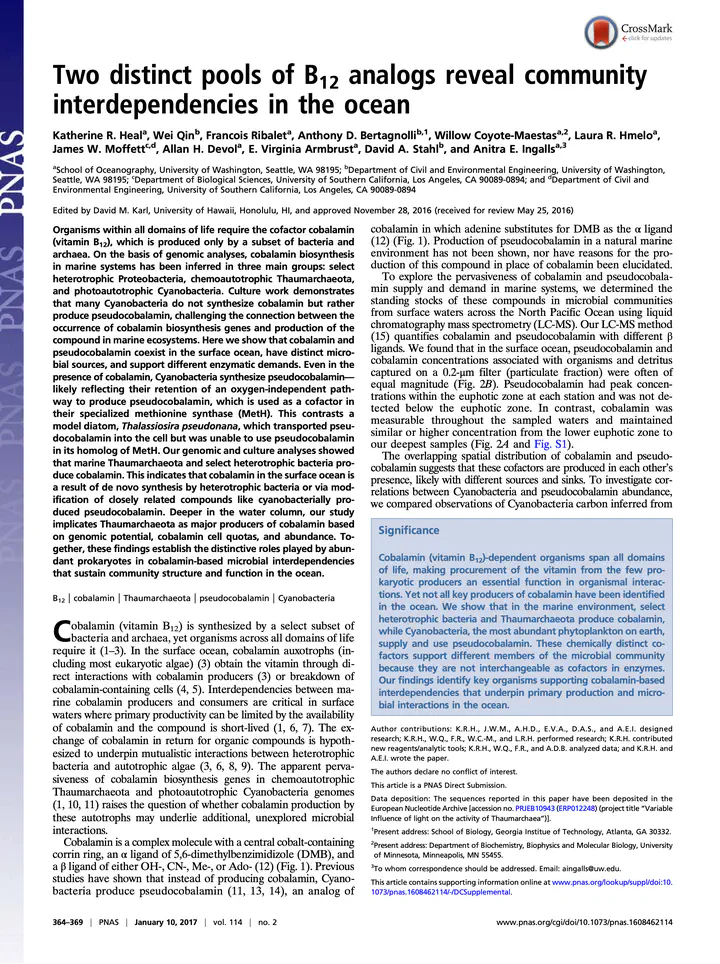
Abstract
Organisms within all domains of life require the cofactor cobalamin (vitamin B 12), which is produced only by a subset of bacteria and archaea. On the basis of genomic analyses, cobalamin biosynthesis in marine systems has been inferred in three main groups: select heterotrophic Proteobacteria, chemoautotrophic Thaumarchaeota, and photoautotrophic Cyanobacteria. Culture work demonstrates that many Cyanobacteria do not synthesize cobalamin but rather produce pseudocobalamin, challenging the connection between the occurrence of cobalamin biosynthesis genes and production of the compound in marine ecosystems. Here we show that cobalamin and pseudocobalamin coexist in the surface ocean, have distinct microbial sources, and support different enzymatic demands. Even in the presence of cobalamin, Cyanobacteria synthesize pseudocobalamin likely reflecting their retention of an oxygen-independent pathway to produce pseudocobalamin, which is used as a cofactor in their specialized methionine synthase (MetH). This contrasts a model diatom, Thalassiosira pseudonana, which transported pseudocobalamin into the cell but was unable to use pseudocobalamin in its homolog of MetH. Our genomic and culture analyses showed that marine Thaumarchaeota and select heterotrophic bacteria produce cobalamin. This indicates that cobalamin in the surface ocean is a result of de novo synthesis by heterotrophic bacteria or via modification of closely related compounds like cyanobacterially produced pseudocobalamin. Deeper in the water column, our study implicates Thaumarchaeota as major producers of cobalamin based on genomic potential, cobalamin cell quotas, and abundance. Together, these findings establish the distinctive roles played by abundant prokaryotes in cobalamin-based microbial interdependencies that sustain community structure and function in the ocean.